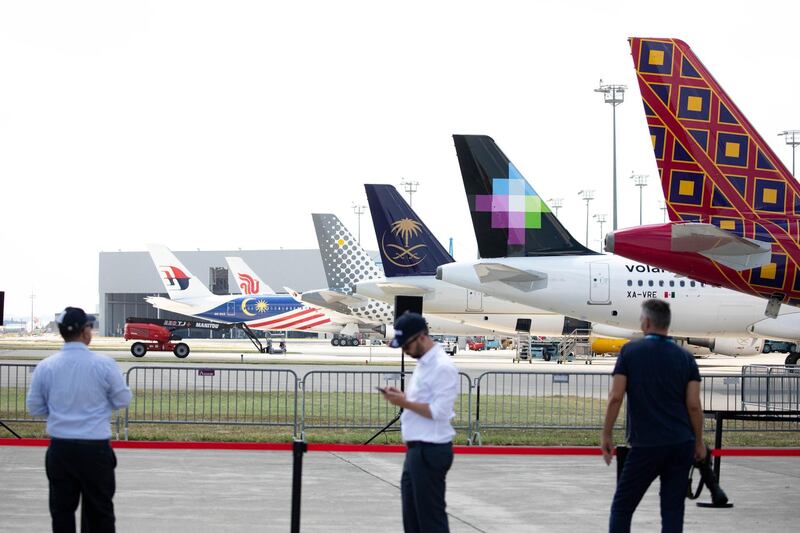Visitors to Europe and hoildaying residents of the continent face a summer of air travel misery, according to the International Air Transport Association, as new data revealed that delays so far this year have more than doubled compared to 2017.
"We are in the summer season in Europe. Travellers want to get to their holidays on time. And too many will be disappointed because of air traffic delays," Alexandre de Juniac, Iata’s director general and CEO, said on Wednesday. "We should be making progress, but delays are double those of last year."
As airlines add flights to new destinations and expand their offer to meet the expectations of travellers, air traffic in Europe is on the rise, creating greater demands on the continent’s airspace. European carriers’ May demand climbed 6.2 per cent over May 2017, well above the 3.4 per cent year-over-year growth recorded in April, while North American airlines’ traffic rose 4.9 per cent, a strong rebound from 0.9 per cent annual growth in April, which was a 36-month low, Iata said this month.
Data from the European Organisation for the Safety of Air Navigation, known as Eurocontrol, shows that in the first half of 2018, Air Traffic Management (ATM) delays more than doubled to 47,000 minutes per day, 133 per cent more than in the same period last year. Most of these delays are caused by staffing and capacity shortages as well as other causes such as weather delays and disruptive events such as strikes, it said. The average delay for flights held up by air traffic control limitations reached 20 minutes in July, with the longest delay reaching 337 minutes, the data show.
Iata called on the governments and air navigation service providers of Europe to address the region’s airspace bottlenecks that have exacerbated the problem, although Mr de Junaic acknowledged improvement was unlikely near term.
"There is no quick fix for this year. But the needed solutions are well-known. With the correct investment and planning by governments and ANSPs we can, and must, make next year better," he said.
_______________
Read more:
Middle East carriers to need 2,990 new aircraft over 20 years, says Boeing
Middle East air passenger demand growth slows in May
_______________
ANSPs manage each state’s airspace and charge overflight fees for the services they provide. As flight numbers have increased, so has their revenue. Eurocontrol calculates that European ANSPs have made an average 9.6 per cent in earnings before interest and tax in recent years.
Unfortunately, key ANSPs in Europe have not made needed investments in their businesses, preferring instead to make super-normal profits, Iata said. The largest service providers have either under-invested in staff or used outdated employment practices which don’t deploy staff when and where they’re most needed, resulting in unnecessary delays for passengers.
Many European ANSPs have also failed to make planned technology investments intended to increase capacity, the agency added.
Iata is calling on the European Commission, member states and ANSPs to take urgent action with the following four-point plan:
Modernise the infrastructure and implement the Single European Sky ATM Research, something airlines are already paying for;
Reform outdated work practices so that staff are deployed when they’re required; and, where justified, recruit additional staff;
Empower the European Network Manager to plan and configure the network to meet the demands of air travellers;
Strengthen the Performance and Charging Scheme so that ANSPs not delivering agreed capacity are subject to meaningful penalties.
"The impact of ATC delays ripple throughout the economy. At a time when Europe’s competitiveness urgently needs to be improved, increasing ATM delays is totally unacceptable.
"Travellers are fed-up. Change must start now," said Mr de Juniac.






